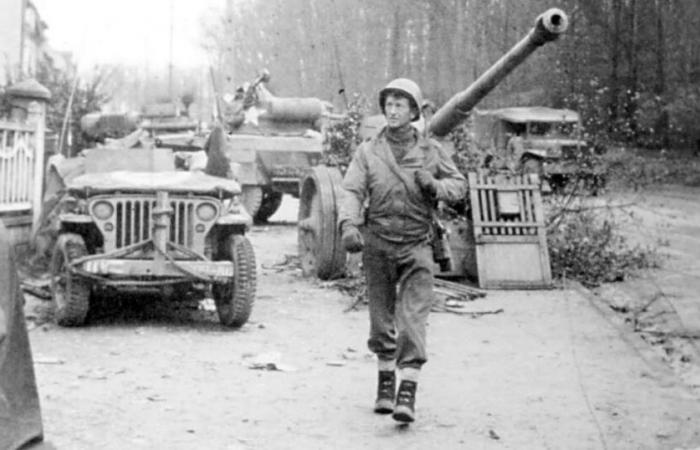This content is blocked because you have not accepted cookies and other trackers.
By clicking on “I accept”cookies and other trackers will be placed and you will be able to view the contents (more information).
By clicking on “I accept all cookies”you authorize the storage of cookies and other trackers for the storage of your data on our sites and applications for personalization and advertising targeting purposes.
You can withdraw your consent at any time by consulting our data protection policy.
Manage my choices
I accept
I accept all cookies
Marie-Thérèse was 9 years old at the time of the events and she testifies in the book Metz 1940-1950 – From turmoil to renewal, written by Christian Fauvel published by Les Paraiges.
“I lived at Place Saint-Vincent. The day of November 20 remains etched in my memory, but it is not a good memory. For some, it was a celebration, the return to freedom, the distribution by the GIs of chocolate, cigarettes, stockings for the women… For me, it remains a moment of sadness. »
When an American tank arrived at Place Saint-Vincent, “the residents exploded with joy and the neighbors waved a white sheet at the window.” But the advance troops were “informed of the presence of snipers in the neighborhood,” continues the author of the book.
Americans are suspicious. “On this annexed territory, the inhabitants speak German, all the signs are written in German, the currency is in marks: the GIs do not have confidence”, intervenes the historian Georges Jérôme, specialist in the history of Metz at the Nazi era.
“For the basic GI, it is obvious that he is already in Germany and that he is dealing with bad Germans,” adds Christian Fauvel.
Already the day before, this distrust caused a tragedy when the soldiers of the 95e infantry division returned to Metz from Saint-Julien-lès-Metz to retake Fort Bellecroix, access to which was mined according to the FFI. Suspicious, the Americans did not transmit the orders in time and the soldiers jumped on the mines.
At Saint-Vincent Square, the Americans took Marie-Thérèse's neighbors for German soldiers wanting to surrender. “They are issuing summons. No response reaches them and the tank fires on the building,” writes Christian Fauvel. As soon as he realizes his mistake, the tank commander gets out of his vehicle to help the buried people. Marie-Thérèse is one of them: “He freed me from the rubble and took me in his arms, then he crossed the street to bring me to safety on the sidewalk opposite. Once he put me down, he took off his helmet to wipe his forehead. Two gunshots rang out and he collapsed next to me. I can still see the hole he had in the middle of his forehead. » For Marie-Thérèse, “the liberation of Metz remains an atrocious day”.
“Do you know? Metz” can also be listened to as a podcast
This content is blocked because you have not accepted cookies and other trackers.
By clicking on “I accept”cookies and other trackers will be placed and you will be able to view Acast content (more information).
By clicking on “I accept all cookies”you authorize the storage of cookies and other trackers for the storage of your data on our sites and applications for personalization and advertising targeting purposes.
You can withdraw your consent at any time by consulting our data protection policy.
Manage my choices
I accept
I accept all cookies






